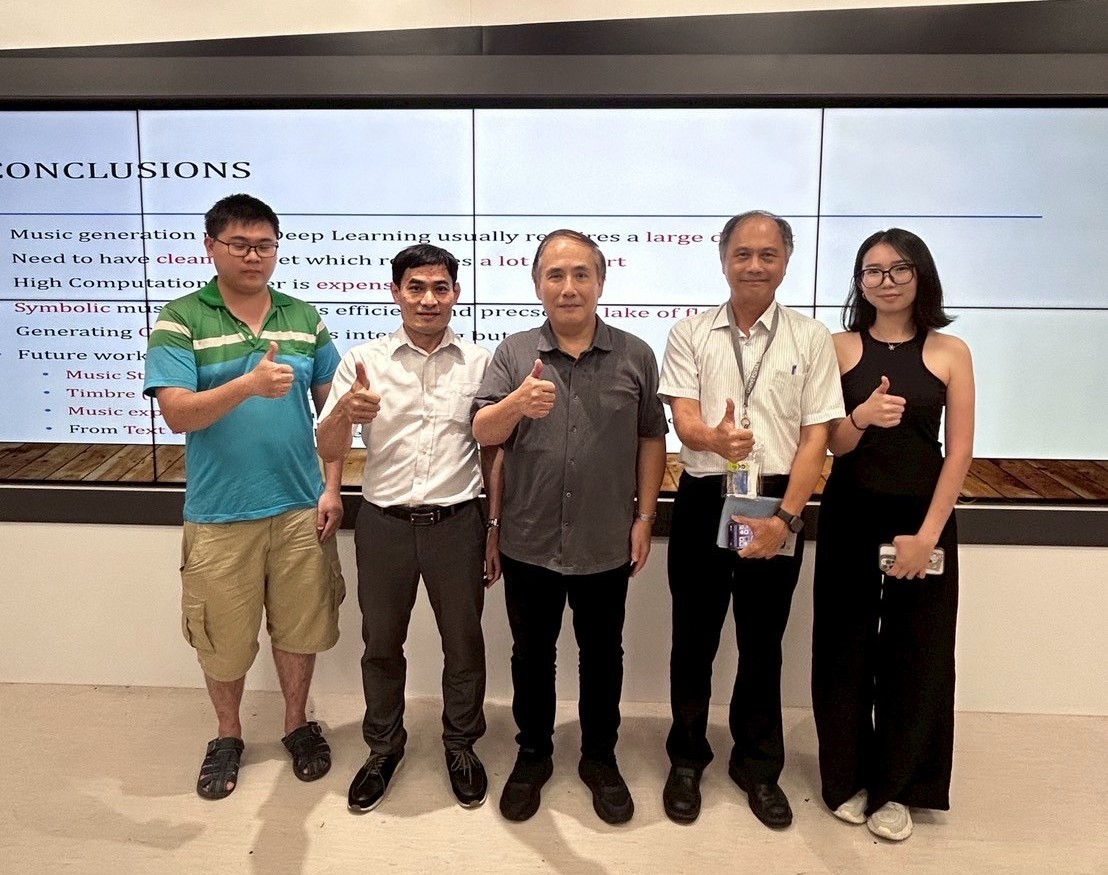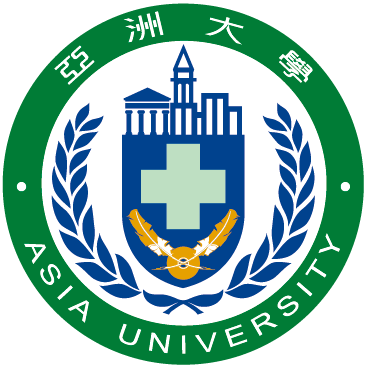Sharing on “Deep Learning Applications in Asian Music Generation”, the lecture explored new frontiers in AI-driven creativity.
 Dean of the College of Information and Electrical Engineering at Asia University, Dr. Ching-Hsien Hsu (2nd left),seniorprofessor of Computer Science at National Central University, Dr. Kuo-Chen Shih (center), and participating facultymembers pose for a group photo.
Dean of the College of Information and Electrical Engineering at Asia University, Dr. Ching-Hsien Hsu (2nd left),seniorprofessor of Computer Science at National Central University, Dr. Kuo-Chen Shih (center), and participating facultymembers pose for a group photo.
On May 15, the College of Information and Electrical Engineering at Asia University hosted a special lecture featuring Professor Kuo-Chen Shih, a senior professor from the Department of Computer Science and Information Engineering at National Central University. Professor Shih presented his research on "Using Deep Learning for Asia Music Generation," exploring the multifaceted development of future music generation technologies.
Dean Ching-Hsien Hsu of the College of Information and Electrical Engineering noted that Professor Shih is an internationally recognized expert in multimedia and AI. He previously served as Dean of the College of Information at Asia University and Director of the AI Innovation Research Center at NCU. His return to AU to give this lecture highlights the university's strong ties to global AI advancements and provides students with a rare and valuable learning opportunity.
In his talk, Professor Shih introduced the Asia Music Generation System developed by his team, which uses symbolic musical notation (notes rather than audio signals) as the computational foundation. This approach significantly reduces memory and computational requirements. “With just a single RTX 4090 GPU, we were able to generate five types of Asia-inspired music—melody and accompaniment included—receiving positive feedback from professional musicians,” he said. He also emphasized the challenges in integrating music theory with reinforcement learning, given the structural and aesthetic differences between Asian and Western music.
Professor Shih further shared insights into the experimental design involved in developing the music generation system. Using three versions of the “motion generation module” as examples, he explained how rigorous experiments were conducted to compare differences in generation accuracy, efficiency, and output quality. He also demonstrated how optimizing prompts with GPT-4 significantly improved image quality in Stable Diffusion, underscoring the pivotal role of language models in generative tasks.
Looking ahead, Professor Shih emphasized that future research in music generation will expand toward diverse directions such as melodic structure, timbre control (e.g., for traditional instruments like erhu and pipa), harmony, and emotional expression. He noted, “Generating music from text will increasingly rely on more powerful large language models. The next step in AI-generated music will be how to express Eastern aesthetics and cultural significance.”
The lecture concluded with an enthusiastic Q&A session, where faculty and students actively engaged in discussions, creating a vibrant atmosphere of academic exchange.





